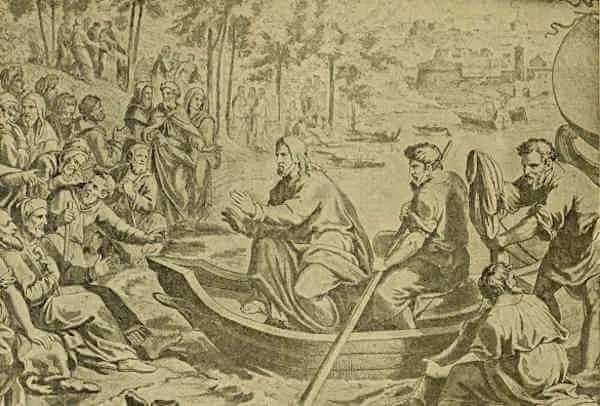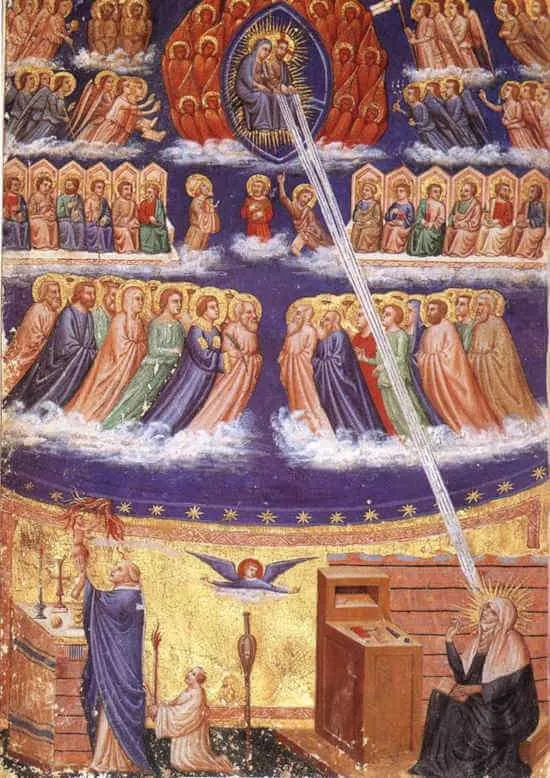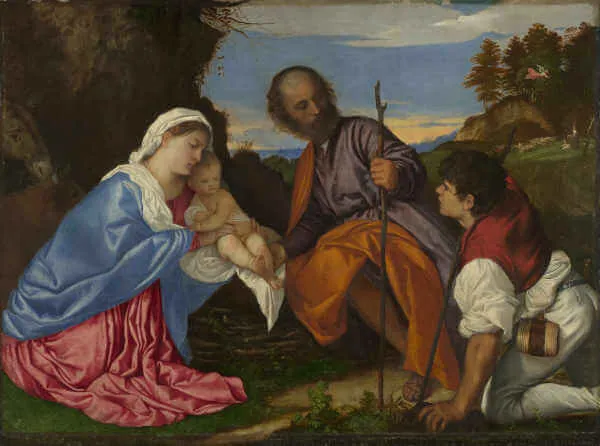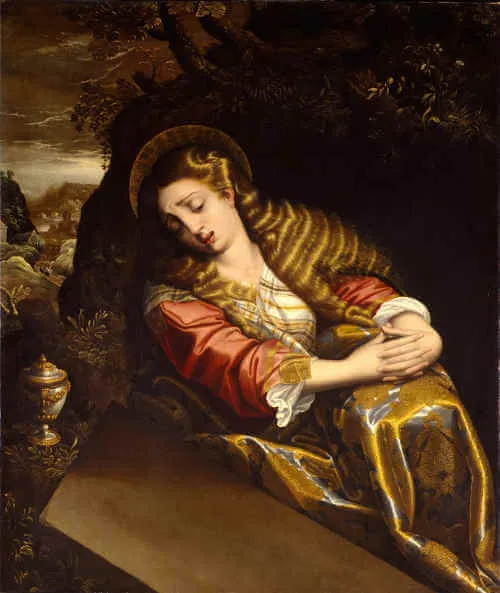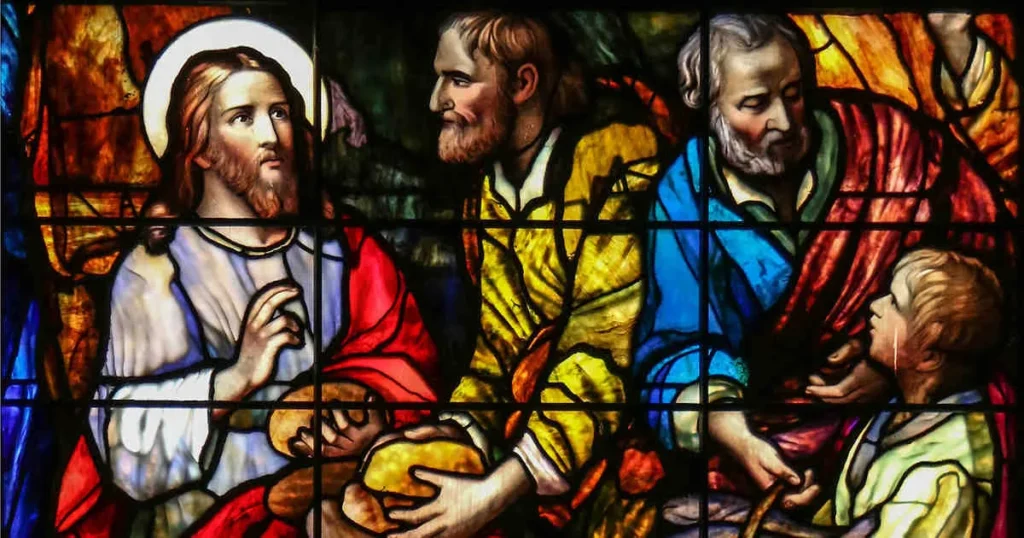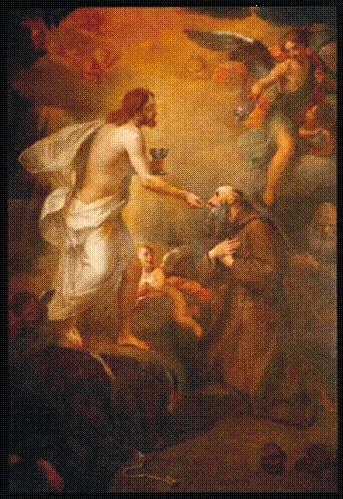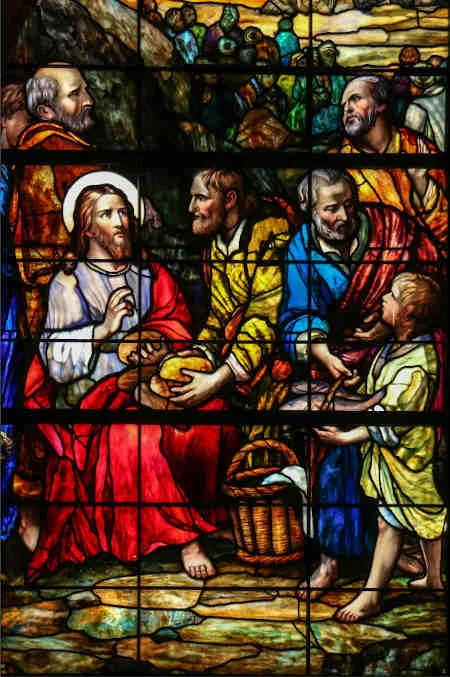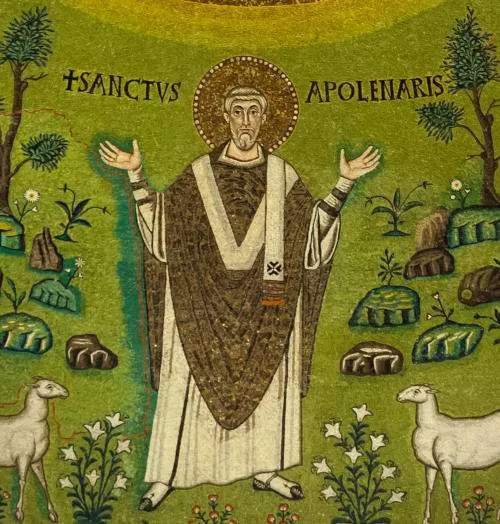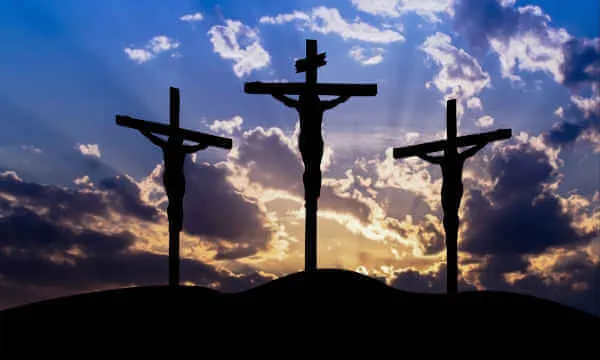Matthew 13:1-3
Speaking in Parables
On that day, Jesus went out of the house and sat down by the sea. Such large crowds gathered around him that he got into a boat and sat down, and the whole crowd stood along the shore. And he spoke to them at length in parables…
Reflection:
Why did Jesus speak in parables? In today’s Gospel, Jesus goes on to teach the familiar “Parable of the Sower.” Immediately after that parable in today’s Gospel, the disciples do ask Jesus this question. They ask, “Why do you speak to them in parables?” Jesus responds to them, “Because knowledge of the mysteries of the kingdom of heaven has been granted to you, but to them it has not been granted.” So why is that?
First of all, a story is easy to listen to. It keeps our attention and is easily remembered. In the “Parable of the Sower” that we hear today, Jesus explains that the seed sown by the sower falls either on the path, on rocky ground, among thorns, or on rich soil. This is a very visible description that will lead people to conclusions right away. Everyone knows that the ideal place for seed to be sown is rich soil. And everyone knows that the seed sown on the path, rocky ground and among thorns has little hope of producing fruit. Therefore, this parable easily draws the listener in so as to understand some basic lessons.
With that said, this story will only become a parable if the deeper lesson is learned. Clearly, Jesus wanted the crowd to understand that they will only understand the mysteries He is teaching them if they are like the rich soil. And He also wanted them to understand that much of what He was teaching them was not falling on rich soil in their hearts.
This parable, as well as all of Jesus’ parables, has the effect of causing the listener to think. Thinking leads to what we may term a holy curiosity. And this holy curiosity will begin to produce the rich soil that was needed within them so as to open the door to the deeper mysteries of the Kingdom of Heaven.
How does Jesus speak to you? Are you able to listen to Jesus speak directly to you, in prayer, so as to reveal to you the deepest mysteries of Heaven? When God speaks to you, in prayer and meditation, does the seed of His Word take root in your very soul? Does His gentle, quiet but transforming Voice communicate to you Who He is and what His will is for your life? If not, then parables are for you. And knowing that is an important discovery.
Reflect, today, upon the desire of God to speak to you. If you do struggle with hearing the clear and profound Voice of God resonate within your soul, then do not be afraid to spend time with the many parables that Jesus told. Try to place yourself within the scene. See yourself as a participant. In today’s parable, see your inner self as the field. Think about those things in your life that keep your soul from being rich soil. Allow this story of Jesus to speak to you. As you do, be attentive to God’s Voice. Listen for Him and listen to Him. And as you do hear Him, know that the seed He has scattered has begun to reach that rich soil of your heart.
Source: https://catholic-daily-reflections.com/2024/07/23/speaking-in-parables-3/


